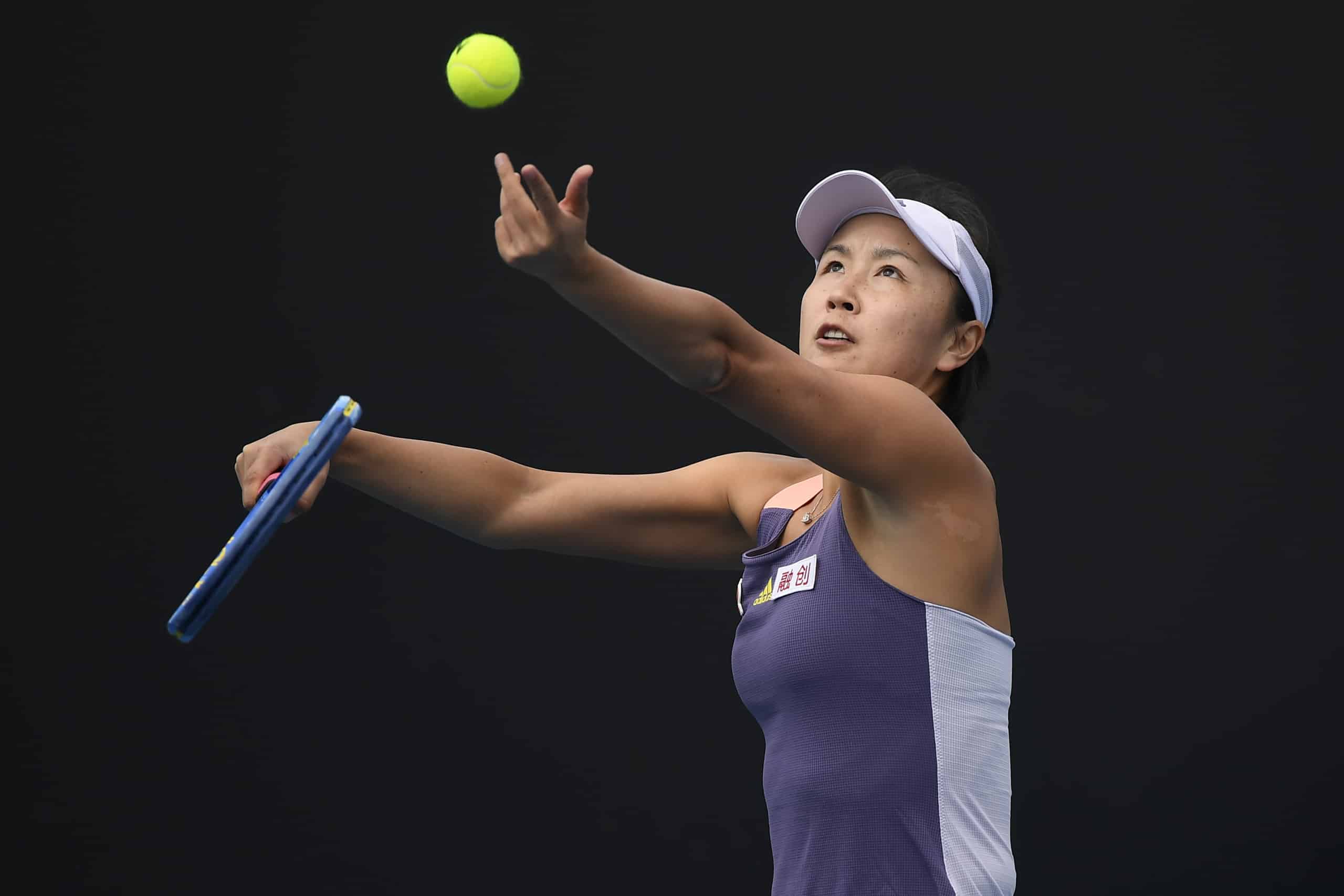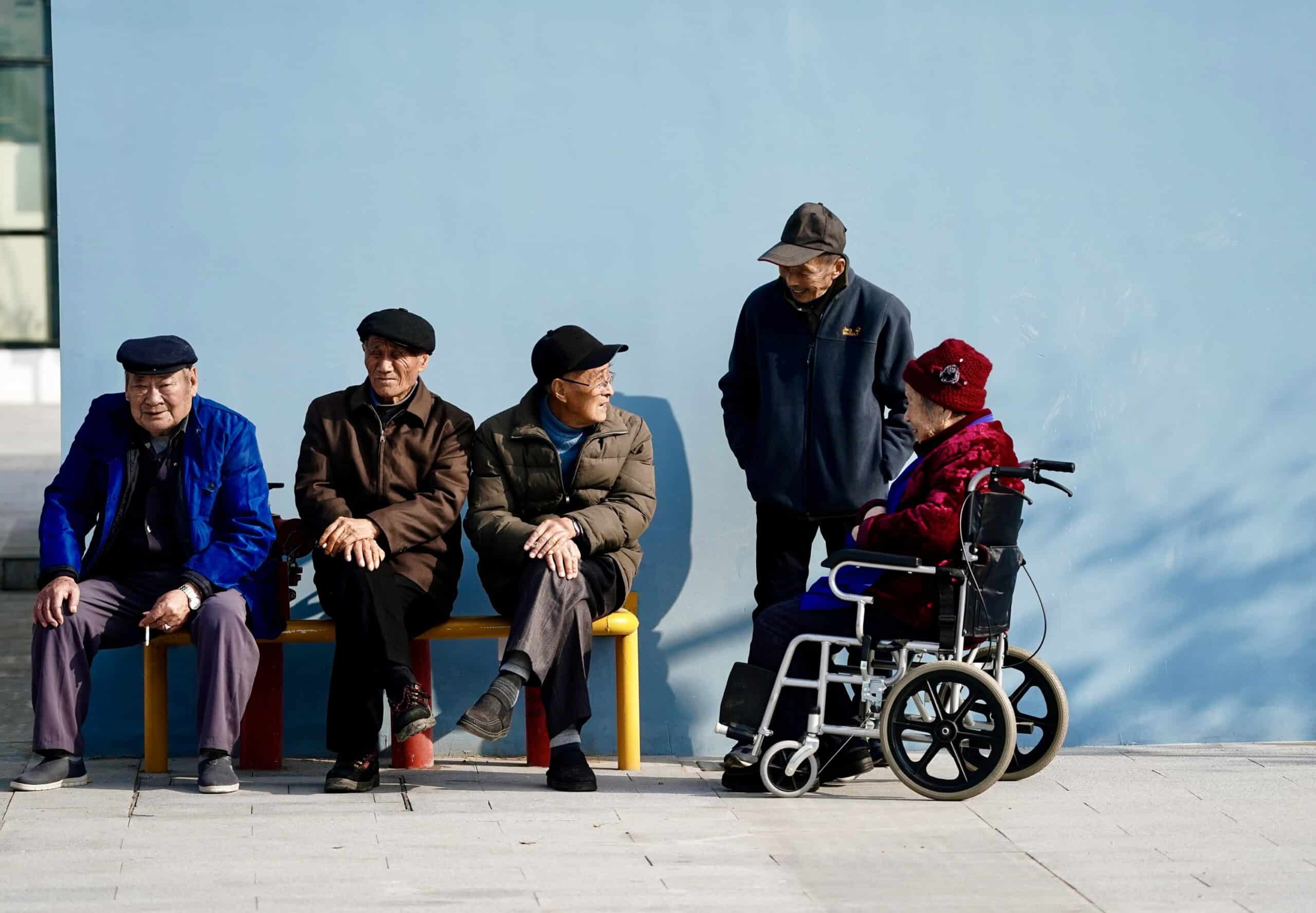
In September, Micky Lawler, the president of the Women’s Tennis Association (WTA) boasted about the tour’s heavy investment in the Chinese market. Among the highlights: brokering a $1 billion deal in 2018 to move its prestigious annual Finals to Shenzhen, build a 12,000-seater stadium for the competition and double its prize money.
“China represents a big opportunity for the WTA and the choice allowed us to make big steps forwards,” Lawler said in an interview with France’s Tennis Magazine. “Please name me one person who would have said no to China?”
Just three months later, after an international scandal blew up around the apparent disappearance of former world No. 1 Chinese doubles player Peng Shuai, the WTA has done just that. On Wednesday, it suspended all its tournaments in China — a move that could have implications well beyond the sporting world.
“If the WTA does persist and show that the costs it will pay are manageable and may even be compensated to an extent by rallying support from outside of China, it may get some businesses re-thinking the balance between their China-based businesses and their businesses outside of China,” says Steve Tsang, director of the SOAS China Institute in London.
Peng Shuai disappeared from public view in early November, after she earlier posted accusations on Weibo that Zhang Gaoli, a former vice premier of China, had sexually assaulted her. A #WhereIsPengShuai movement gained momentum on social media, with Serena Williams, Novak Djokovic and Naomi Osaka posting in support of her. The WTA called for an investigation into her allegations.
Chinese state media has responded by releasing videos of Peng and emails purporting to be from her insisting that “everything is fine.” That has convinced few outside of China. Steve Simon, the WTA’s chief executive, said in a statement this week that allowing Peng’s allegations to be “[swept] under the rug” would represent an “immense setback” for women’s equality, a founding principle for the organization.
“None of this is acceptable nor can it become acceptable,” Simon said. “I hope leaders around the world will continue to speak out so justice can be done for Peng, and all women, no matter the financial ramifications.”

Yet the financial fallout for the WTA will be a matter of keen interest to many other organizations. Ever since China’s economy began to open up in the 1980s, global companies across all sectors have been drawn to its market, lured above all by its vast and increasingly prosperous consumer base.
Many have stayed the course despite sometimes high barriers to expansion, and — particularly in recent years — criticism from prominent politicians to pressure firms about operating in China, given its record on human rights and other political issues. Companies such as LinkedIn and Yahoo have, albeit for different reasons from the WTA, recently concluded that staying in China may simply not be worth the trouble.
The WTA declined to disclose how much of its total revenue comes from China, but a spokesperson told The Wire, “This pathway we have now embarked on will be complicated and difficult. The actual losses that may be realized are undetermined at this point, but they will be significant to our organization.”
“I suspect that they have made a calculation and the numbers say to do this,” says Simon Chadwick, an expert on the business of global sports at Emlyon Business School in France. “They probably sense that it is better business to take that position or to equivocate or side with China.”
The WTA started its courtship of China in earnest at the time of the 2008 Beijing Olympics, when it staged two tournaments in the country. By 2019, before Covid-19 upended the schedule, the WTA was holding about ten tournaments in China annually, with total prize money equal to $30 million. That included $14 million for the Shenzhen tour Finals, $5 million more than for the equivalent men’s event in the UK.
“The WTA has for many years cultivated a rosy relationship with China — they dreamed of the golden China market” says Xu Guoqi, a Hong Kong University professor who studies the history of sports in China.
Among the ties the WTA has in China, it brokered a ten-year deal reportedly worth $120 million starting in 2017 with the Chinese streaming platform iQiyi, which became the tour’s digital rights partner in China. iQiyi did not respond to requests for comment.
Despite such deals, “This has always been a problematic arrangement,” says Jon Wertheim, the executive editor of Sports Illustrated and who has recently argued that the WTA should quit China. “Women’s tennis got a very lucrative offer to put these tournaments in China, but there are very few fans in the stands, the players don’t like to play there, and there are few prominent Chinese players.”
The success of Li Na, a former French and Australian Open singles champion who rose to world No. 2 in 2014, raised hopes that more Chinese tennis stars could emerge. But currently, there are no female Chinese singles players in the world’s top 50. Due to Covid-19 travel restrictions, no WTA events have been held in China since January 2020, and the tour Final was moved from Shenzhen to Mexico this year.
Some say tennis doesn’t fit well with the government’s economic agenda of addressing wealth inequality under the rubric of ‘common prosperity’. “The WTA is looking ahead,” says Chadwick. “The government has not been entirely supportive of tennis, it is seen as an affluent middle class sport….[that] is not what they want to support right now.”
For sure, the WTA’s decision goes beyond economics: The organization has a long history standing up for women’s equality. “I keep thinking about Billie Jean King, who was the great spokesperson for women’s tennis,” says Michael Santoro, a corporate ethics expert at the Santa Clara University’s Leavey School of Business, referring to the former World No. 1 who founded the WTA in the 1970s. “It is deep in the DNA of the WTA to care about human rights and gender rights.”
It is deep in the DNA of the WTA to care about human rights and gender rights.
Michael Santoro, a corporate ethics expert at the Santa Clara University’s Leavey School of Business
Still, an important question for the WTA’s peers will be whether increased support from elsewhere for its stance on China can compensate for lost revenue there. The organization’s withdrawal from China has already drawn praise from Republican Senators to human rights activists.
“Can they capitalize on everyone praising them? Does that have value in the marketplace?” Sports Illustrated’s Wertheim asks.
The WTA’s moves stand in stark contrast to the approach of other sports organizations. After the Houston Rockets general manager, Daryl Morey, tweeted in support of Hong Kong protestors last year, he deleted the tweet and issued an apology. NBA executives estimate that they lost $400 million from the incident. (Since then, however, the NBA has not prevented its players from speaking out, as Enes Kanter of the Boston Celtics has done recently, harshly criticizing Beijing over its human rights record.)
And with the Winter Olympics set to open in Beijing in less than two months, International Olympic Committee president Thomas Bach has conducted two video calls with Peng, ostensibly to assuage concerns about her safety. “There are different ways to achieve her well-being and safety,” the I.O.C. said in a statement after the WTA announced its decision to exit China. “We are using ‘quiet diplomacy.’” The men’s tennis tour announced last week that they would not be suspending tournaments in China.
Such responses are set to become less tenable following the WTA’s action. “Everybody is looking, and it is going to set a precedent,” says Lisa Delpy Neirotti, director of the sport management master’s program at George Washington University. “Sports organizations are realizing that they are never going to please everyone, but there is a right and a wrong.”

Katrina Northrop is a journalist based in Washington D.C. Her work has been published in The New York Times, The Atlantic, The Providence Journal, and SupChina. @NorthropKatrina



